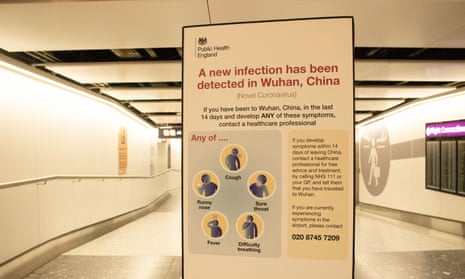The atmosphere on my morning commute is tense. As panic over the coronavirus deepens and dominates the headlines, as an east Asian I can’t help but feel more and more uncomfortable. On the bus to work last week, as I sat down, the man next to me immediately scrambled to gather his stuff and stood up to avoid sitting next to me.
On the train over the weekend, a group sat opposite me chattering about their weekend plans. One of them seriously advised the rest, “I wouldn’t go to Chinatown if I were you, they have that disease.”
As I made my way towards Chinatown in London, an elderly woman and her friend on the escalators at Leicester Square underground station were casually talking about how dangerous the area now was, and she complained she was obliged to go there for a meeting. “At least I’m old, I have nothing left to lose,” she laughed.
In another loud conversation, I overheard a woman talking about how terrified she was that her friend, who had spent some time working with Chinese students, might have infected her with the virus.
In light of current events, we east Asians in the UK are on high alert, paying close attention to how people interact with us. It is not their concern about health that is problematic, but the stereotyping of all east Asians as a coronavirus risk. At times such as this, even a simple bus trip can feel like a hostile environment.
A friend at a university library experienced something similar: as soon as they sat down at a desk, the person in front of them packed up their things to leave. We’re noticing odd things like this that we never saw happen before.
Perhaps it did not occur to some of these people, so happy to talk loudly in front of me, that I was also concerned about the virus – or that I, as a British citizen, was no more likely than them to be carrying the virus. They grouped all east Asian people together, without factoring in that perhaps we were British or, if not, we were from unaffected areas of China, or even came from other countries in the Chinese diaspora. We were all the same to them.
The virus that originated in Wuhan has spread to at least eight other countries including Thailand, Japan, Australia and the US, and it’s “highly likely” it will reach the UK, according to Public Health England.
As it spreads, the virus has revealed more and more stereotyped judgments about Chinese people. I have also heard accounts from east Asians, even if they are not Chinese, who have recently been profiled while travelling at airports or on trains due to the ignorant perception that all east Asians are Chinese.
George Osborne, editor of the Evening Standard, proudly tweeted his newspaper’s cartoon of a rat with a face mask to supposedly commemorate the lunar new year. Piers Morgan mocked the Chinese language on Good Morning Britain with a tired “ching chang chong” joke. East Asians have been accused of instigating the virus by having “revolting” eating habits. Most Asians know these stereotypes all too well.
These insulting depictions don’t reflect the reality of being Chinese at all, and encourage the misguided perception of more than one billion people being a monolithic and singular group in which everyone speaks, acts and looks the same. In fact, there is a huge diversity.
Language and culture vary massively within the region. Speakers of Hokkien would not be able to converse with people who speak Hakka. And despite Mandarin being the lingua franca, there are more than 200 dialects spoken across China. In fact in Wuhan itself, a beautiful and diverse city with more than 3,500 years of history, many of its population of 11.8 million speak a Wuhan dialect.
Elsewhere, natives of Aksu look completely different to the majority Han Chinese. And the food, too: dim sum from the south of China is vastly different from the tangy, spicy flavours of Sichuan.
This week, my ethnicity has made me feel like I was part of a threatening and diseased mass. To see me as someone who carries the virus just because of my race is, well, just racist.
As the lunar new year celebrations take place across the world, let’s take a moment to think about the way in which east Asians are perceived and how important it is to see us in all our diversity, as individual human beings, and to challenge stereotypes. The coronavirus is a human tragedy, so let’s not allow fear to breed hatred, intolerance and racism.
